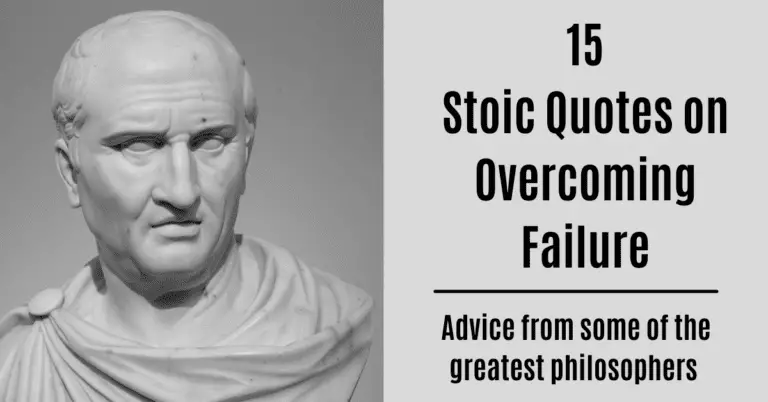Stoicism Made Simple: 3 Essential Books for Beginners
Are you interested in Stoicism but don’t know where to start?
Look no further than “Meditations” by Marcus Aurelius, “The Daily Stoic” by Ryan Holiday, and “How to Think Like a Roman Emperor: The Stoic Philosophy of Marcus Aurelius” by Donald Robertson.
These three books provide a well-rounded introduction to the philosophy of Stoicism, from the classic works of two of its most famous practitioners to a modern guide to incorporating Stoic practices into your daily life.
In this blog post, we’ll review each of these stoicism books for beginners, highlighting their strengths and weaknesses, and exploring how they can help you to cultivate the 4 stoic virtues.
Whether you’re a seasoned student of philosophy or just curious about Stoicism, these books have something to offer. So let’s dive in and explore what makes these three Stoic classics.
This post may contain affiliate links so we may receive compensation if you sign up for or purchase products linked to below. As an Amazon Associate, I can earn from qualifying purchases.
Table of Contents
Meditations – Marcus Aurelius
“Meditations” is a fascinating philosophical classic that offers a unique and personal insight into the mind of one of the most powerful rulers in history, the Roman Emperor Marcus Aurelius.
Written as a collection of personal notes and reflections that Aurelius wrote to himself, the book provides readers with a window into his thoughts and beliefs on how to live a good life.
The work is divided into twelve books, each containing a series of short aphorisms and meditations that cover a range of topics, including personal ethics, self-improvement, and the nature of the universe. Aurelius’ stoic philosophy is evident throughout the text, with a focus on cultivating virtue, finding inner peace, and facing life’s challenges with equanimity.
One of the strengths of “Meditations” is its emphasis on the importance of living in the present moment, accepting what cannot be changed, and focusing on the things that truly matter.
These principles are both timeless and inspiring offering valuable guidance for anyone seeking to cultivate greater resilience and wisdom in their own lives.
However, the book is not without its flaws. Personally, I found the writing to be repetitive and dense at times in some areas. I’m a big fan of simple reading and some translations were difficult for me to understand. Additionally, some critics have noted that Aurelius’ stoicism can be extreme and might not be applicable to all situations or cultures.
Overall, “Meditations” is a well-regarded work of philosophy that provides a fascinating glimpse into the mind of one of history’s most revered leaders. It is a worthwhile read for anyone interested in Stoicism or seeking practical advice on how to live a more fulfilling life.
The Daily Stoic – Ryan Holiday
“The Daily Stoic” is a popular guide to Stoic philosophy, co-written by Ryan Holiday and Stephen Hanselman. The book is structured as a daily devotional, with each day offering a short passage from a classic Stoic text, followed by a reflection and practical exercise to help readers apply the lessons of Stoicism to their daily lives.
It is divided into 366 entries, one for each day of the year (including a leap year), and draws on the works of key Stoic philosophers such as Seneca, Epictetus, and Marcus Aurelius.
Personally, I’m a big fan of the daily format. By presenting Stoicism in this way, the book aims to make the philosophy’s key concepts and teachings accessible to a wide audience, and to encourage us to incorporate Stoic practices into our daily routines
However, some critics have expressed concern that the book oversimplifies Stoicism, presenting it as a self-help system rather than a complex philosophical tradition. While the daily format may be helpful for some readers, others have found it repetitive or formulaic.
Despite these critiques, I believe “The Daily Stoic” to be well-written and engaging guide to Stoicism that offers valuable insights and practical exercises for readers seeking personal growth and resilience.
How To Think Like A Roman Emperor – Donald Robertson
“How to Think Like a Roman Emperor” is a book by Donald Robertson that uses the life and writings of the Roman Emperor Marcus Aurelius to explore the philosophy of Stoicism. The book offers a comprehensive introduction to Stoic philosophy, using Aurelius as a case study to illustrate key concepts and practices.
The book’s strength lies in its engaging writing style and its use of real-world examples to illustrate Stoic principles. Robertson effectively shows readers how Aurelius used Stoicism to navigate the challenges of ruling an empire, while also offering practical advice for readers seeking to apply Stoic principles to their own lives.
The book is also well-researched and includes many references to primary sources, making it a valuable resource for those seeking a deeper understanding of Stoic philosophy.
However, some critics have argued that the book’s focus on Aurelius as a historical figure may overshadow the broader aspects of Stoicism.
Overall, “How to Think Like a Roman Emperor” is a well-written and engaging introduction to Stoic philosophy. It provides readers with valuable insights and practical advice for cultivating resilience and inner peace, while also offering a nuanced understanding of Stoic philosophy and its potential applications.
Conclusion
For those of you interested in exploring the philosophy of Stoicism, these three stoicism books for beginners offer an excellent starting point.
From the classic work of “Meditations” by Marcus Aurelius to the modern guide of “The Daily Stoic” by Ryan Holiday and the comprehensive introduction of “How to Think Like a Roman Emperor” by Donald Robertson, each book provides a unique perspective on this ancient philosophy.
By reading and applying the principles outlined in these books, you can learn how to cultivate the four Stoic virtues and lead a more fulfilling life. So why wait? Start your journey into Stoicism today!






